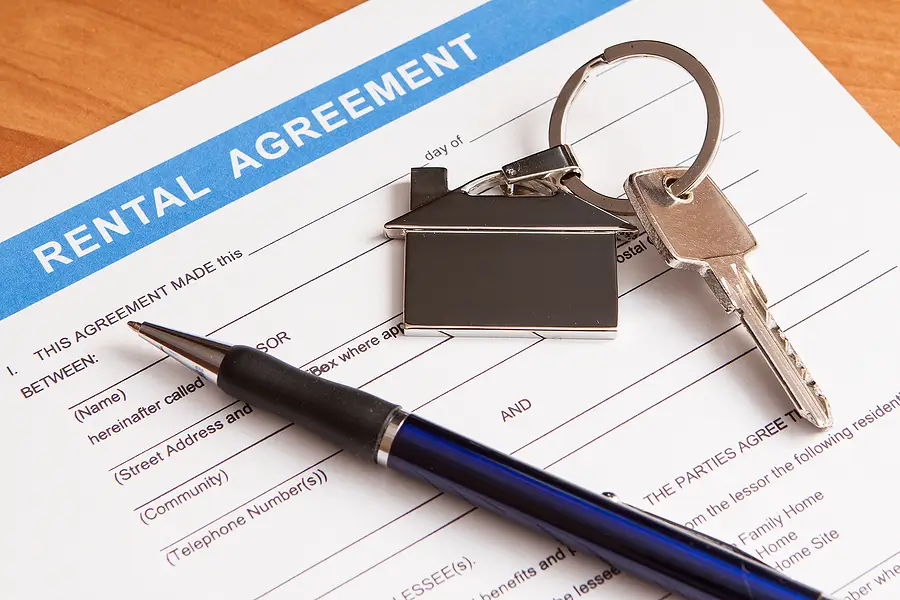A solid lease agreement is the start of a successful rental experience. However, many landlords unintentionally make avoidable mistakes that can lead to financial and legal complications.
In this blog, we'll explore six of the most common lease mistakes and how you can prevent them when creating lease agreements.
Setting Clear Expectations for Potential Tenants
When considering potential tenants, it’s essential to ensure that your lease agreement clearly outlines expectations for the entire rental period.
Unclear rent terms can quickly lead to confusion, late payments, or disputes that could have been avoided with proper documentation.
A clear, detailed lease agreement helps set a strong foundation for a healthy landlord-tenant relationship from the start.
Using Generic Lease Agreement Templates
Relying on one-size-fits-all lease templates or downloadable sample lease agreements from the internet can result in major mistakes.
These documents often fail to address important legal requirements, such as termination and renewal procedures, utility and expense allocation, and protections for both the tenant and landlord. Many also suffer from an inadequate property description, which can lead to confusion about the responsibilities tied to the leased property.
How to avoid it: Treat every lease as a legally binding agreement that clearly defines you and your tenants' lease obligations.
Customize it to align with your local laws and include details like rent due dates, delayed rent fee policies, and specific terms related to utilities, expenses, and property features.
Doing so ensures clarity, compliance, and a professional leasing experience for everyone involved.
Unclear Payment Terms and Financial Obligations
When terms around monthly rent, security deposit, or financial obligations are unclear, it creates room for misunderstandings.
This often leads to disputes over when and how tenants must pay rent or what happens to the tenant’s security deposit after move-out.
How to avoid it: Spell out the amount of monthly rent, due dates, accepted payment methods, and security deposit policies.
When the lease agreement specifies these clearly, it offers protection for both you and your tenant.
Neglecting Renewal or Termination Details
Failure to specify what happens after the lease term ends can negatively impact your tenant-landlord relationship and reduce your rental income. Many legal issues arise when a rental unit reaches its end date without clear termination and renewal procedures, leaving both parties uncertain about their responsibilities.
This lack of clarity in the rental contract can lead to legal obligations being unmet, legal conflicts, or even disputes regarding the return of the security deposit.
How to avoid it: Ensure your lease outlines the full lease term, including detailed termination and renewal procedures, required notice periods, and move-out expectations.
Be sure to inform tenants of all rent provisions clearly and in writing to avoid any confusion.
This protects the legal validity of the agreement and ensures the tenant knows what to expect when their lease ends, keeping your rent paid on time and your operations running smoothly.
Unclear Property Rules or Use Clauses
A lease agreement that lacks clarity on property use, whether for residential or commercial purposes, or whether you permit pets, can create opportunities for tenant defaults or even legal disputes.
How to avoid it: Draft a legally binding contract that establishes a reasonable contractual foundation. Include a detailed property description, clarify whether the property is livable, and define expectations for use.
Ensure the subletting clause pertains to your leasing goals and is clearly explained so the tenant remains legally responsible for anyone they allow to occupy the home.
These proactive steps protect you and your prospective tenants, reducing the risk of legal conflicts and ensuring the tenant's ability to comply with the lease terms.
Failure to Manage Rental Lease Agreements Over Time
If you're a landlord with multiple units or properties, failing to track changes, amendments, or notices makes it difficult to manage lease agreements effectively.
This can lead to missed updates on important clauses, such as security deposit rules, which can create confusion or disputes when tenants move out.
Proper management ensures all terms, including security deposit rules, are adhered to and up-to-date.
How to avoid it: Use rental property management software or hire professionals to keep everything organized and compliant. This ensures your lessee gains rightful access and your rights are always protected.
Failing to Monitor Lease Obligations Over a Fixed-Term Lease
Failing to monitor lease obligations over a fixed-term lease can result in expired leases, unaddressed changes, and legal conflicts.
For example, not planning for what happens after the lease termination date might result in an unexpected vacant property or unresolved legal obligations.
If tenant defaults occur or disputes arise about payments or damages, poorly maintained leases can lead to serious problems.
How to avoid it: Maintain a system to manage rental lease agreements proactively. This includes monitoring lease termination dates, updating legal obligations, and keeping all changes documented.
It ensures a legally compliant leasing experience and helps avoid legal disputes. When rental contracts are consistently updated, it strengthens your legal validity, maintains rental income stability, and provides clarity to all prospective tenants.
Let Legacy Property Management Handle Your Rental Property
At Legacy Property Management, we can help you create effective rental agreements that protect your investment and ensure a smooth renting process. Whether you're new to leasing or simply need support, we’re here to help you manage every detail with confidence.
With our expertise, we can help you avoid significant legal issues by incorporating clear legal language and outlining the intended use of the property, whether for residential or commercial purposes.
Contact us today to discover how we can simplify your leasing process!

